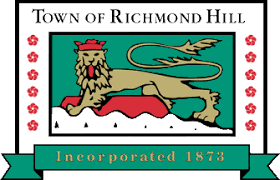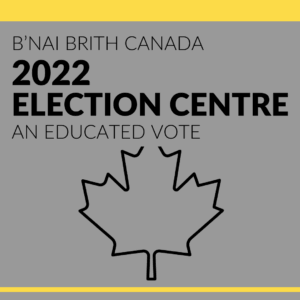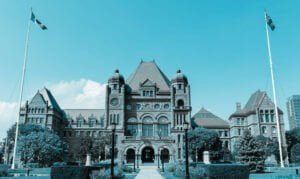
Where the Candidates Stand
Richmond. Hill, a York Region municipality, has a population slightly over 202,000 according to 2021 census data.
Just north of Toronto, the community has experienced a great deal of growth over the last decades. Like its neighbours Markham and Vaughan, Richmond Hill has a substantial Jewish population and is home to several Jewish institutions.
As elsewhere in Ontario, Richmond Hill voters will elect a new Mayor and Council on October 24. Voters citywide elect the Mayor. They will also elect two Regional Councilors citywide with the top two finishers being elected. They will also elect six City Councilors each representing a separate Ward.
To aid Richmond Hill voters make a more informed choice for Mayor, B’nai Brith approached the candidates and asked them to complete a survey.
You may consult the candidates’ responses here:
Question 1: International Holocaust Remembrance Alliance
If elected Mayor, would you introduce a motion at City Council to denounce antisemitism and to
endorse the International Holocaust Remembrance Alliance’s definition of antisemitism?
That definition can be consulted through the following link.
Yes, this is a pressing issue for the Jewish community and deserves to be addressed.
There is absolutely no place for antisemitism in Richmond Hill. It is clearly unacceptable on so many levels. As a council, we could introduce such a motion. But as one jurisdiction within York Region, I feel that a motion to denounce antisemitism and endorse the International Holocaust Remembrance Alliance definition of antisemitism would carry increased weight if came at the Region level. Every year, since 2002, the City of Richmond Hill, has sponsored “Remembering The Holocaust Through Music And Poetry”. Each year, our office worked with Beit Rayim Synagogue and School to host an event in support of Holocaust Education Week (HEW). We are very proud of this partnership and are honoured to recognize that 2019 marked our 11th anniversary together before the COVID pandemic put a pause on the event. If re-elected, I would work to re-start the program.
Question 2: York Regional Police Service Hate Squad Resources
What measures would you propose to improve the York Regional Police Service’s ability to recognize and respond to hate crimes and incidents?
In your opinion, does the York Regional Police Service Hate Crimes have adequate resources?
Improvements in the York Region Police Service’s ability to recognize and respond to antisemitism and all hate crimes and incidents can only come through education – particularly sensitivity training. As a mayor running for re-election, I have in my platform a vision statement that focusses on public safety in all its forms. I don’t believe that York Region Police Service does have adequate resources. But, in saying this, I could not put a number on the concept of ‘adequate’. We try to strike a balance over all the services we provide, but clearly this is one that requires ongoing review.
I would propose that they provide weekly updates on hate crimes to the mayor’s office and in my
opinion, I believe that the police service hate crimes unit does not have adequate resources.
Question 3: Employee Training to Recognize Antisemitism
How would you improve the ability of municipal employees to recognize and counter
antisemitism?
Through employee training programs and seminars, municipal employees will perform their duties
with the utmost vigilance.
In my view, it is essential that municipal employees be able to recognize hate, no matter where it occurs or at whom it is directed. Once again, education and sensitivity training are key pillars in understanding when this is occurring. As to countering, I would see this a case-by-case question, leading to an understanding of when a situation requires a stronger response, such as the involvement of law enforcement.
Question 4: National Plan to Combat Antisemitism
Recently Statistics Canada released its 2021 annual report showing that police reported hate
crimes had reached their highest level since reporting began. Jews representing 1.25% of the
Canadian population were 56% of those victimized in hate aimed at religious minorities.
There is a substantial Jewish population in Vaughan and the report has caused concern in the
community.
Last year in response to the staggering upsurge if violence and hate targeting Jews, the
Government of Canada convened a National Summit on Antisemitism. One of the avenues
proposed as a solution was a more active response to hate by municipalities.
Do you accept the need for a national plan to combat antisemitism as endorsed at the National
Summit on Antisemitism and in which municipalities would play an active role?
Yes. I believe a national plan to combat antisemitism could be beneficial. Hate in any form requires a unified approach from all levels of government and a plan that can be easily understood and provides the tools to deal with it responsibly. Of course, this would involve all municipalities.
Yes
Question 5: Online Hate
Modern day hate often originates online. Canada’s legislation to control hate online has been
outstripped by technology. A recent report by the House of Commons Standing Committee on
Public Safety and National Security proposes measures to address both online hate and rampant
antisemitism.
The recommendations can be consulted through the following link:
https://www.ourcommons.ca/DocumentViewer/en/44-1/SECU/report-6/page-18
B’nai Brith has urged municipalities to endorse the recommendations and invite the Government of
Canada to swiftly enact legislation and regulations to make the recommendations operational.
If elected Mayor, would you introduce a motion at City Council to support the House of Commons
Standing Committee on Public Security and National Security to confront online hate?
Yes
Yes, I would support such a motion. Again, addressing the specific issue of online hate, I feel that a motion at the region would be most effective in support of the House of Commons Standing Committee on Public Security and National Security.
Question 6: Threats to Religious Institutions
Do you support action to combat the increasing security threat to religious institutions such as
synagogues, churches and mosques? What specifically would you propose to do to address this
threat?
I support responsible action to combat the security threat to religious institutions. This issue can only be dealt with effectively if there is collaboration among all stakeholders – the institutions and their supporters, the public, the various councils and, of course, law enforcement. Again, education and cooperation stand out as the most important tools at our disposal.
Yes, to address the threat to religious institutions, I would work with local police forces to ensure
the safety and well being of all religious institutions.
Question 7: Housing
The Greater Toronto Area is one of the most expensive markets for real estate in Canada.
MLS listings show that Richmond Hill housing prices are the 6th most expensive in the GTA.
Recent home sales prices attain a median of $1.3 million:
https://www.zolo.ca/vaughan-real-estate/trends
We recognize that municipalities have limited tools to address the issue of ensuring an adequate
stock of affordable housing. However, for voters of all origins the issue of affordability is a major
consideration.
A) If elected Mayor what measures would your team put in place to ensure an adequate stock of
affordable housing in Richmond Hill?
If elected mayor, I would work with the province to cut red tape in order to open up available lands
to alleviate the current housing market crisis.
Affordable housing for everyone is among the most important elements of my vision. Richmond Hill recently formed an Affordable Housing Strategy Implementation Committee. It’s chaired by the mayor and includes one other member of council as well as representatives from the community. One of the key goals of the committee is to attract new accessible and supportive housing options to Richmond Hill. To achieve this goal, we need to establish collaboration with all stakeholders and other levels of government. This will be crucial if we are to implement the more than 40 potential tools available through the Affordable Housing Strategy.
B) How would you make it easier for first-time home buyers to enter the real estate market?
New home buyers are at a distinct disadvantage due to factor affecting Canadian from Coast to Coast to Coast. If elected and joined by a thoughtful and reasonable council, I believe we can find ways within our Affordable Housing Strategy to help new home buyers.
As the mayor in my platform, I have stated that this requires funding from federal and provincial
governments, working with the municipality and the private banking sector.
Question 8: Public Transit
The Government of Ontario projects that the population of the Greater Toronto Area will
increase from 7.1 million in 2021 to over 10.0 million in 2046.
https://www.ontario.ca/page/ontario-population-projections#chart19
Much or that will be in York region including in Richmond Hill. The region is projected to have a
35% increase in population by 2046.
Job growth in the region will also strain the existing transportation network.
Future sustainable mobility requires a plan to augment the role of transit in the future. York Region
Transport Master Plan has been approved by York Region Council, is now subject to public
comment and is final approval is scheduled for September 29, 2022.
The report indicates a desire to reduce car travel, especially during rush hours, but does not set
a specific goal for increased modal share for public transit. However, the report does allocate
two thirds of estimated future funding of capital costs to transit. The funding and project list can be
consulted on page 87 of the report.
If elected, how would you help realize the Master Transportation 2040 Moving Forward plan? Is the
plan realistic in your estimation? If it requires modification, what would you propose?
The final approval date is before the election, however in my opinion, I believe that most long term
plans have proven to be too unrealistic and are not able to keep up with changing technologies.
Richmond Hill has been engaged with all levels of government to realize the goal of the Master Transportation 2040 Moving Forward plan. The plan is only realistic if we work together collaboratively and with all stakeholders sharing the same goal. At this juncture, I do not feel that modifications to the plan are essential. Deviating from the plan will, in my mind, create the most significant obstacles to a less than acceptable outcome.









